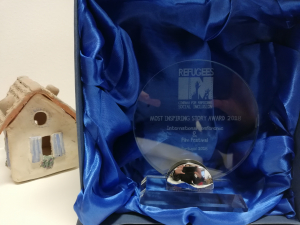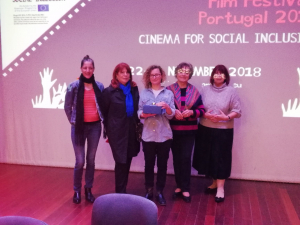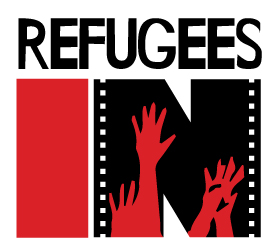RefugeesIn
The project is a natural continuation of the finished CINAGE, European film for active ageing project. In current social circumstances and using the analogy approach, the CINAGE partners got an inspiration for the RefugeesIn.
The analogy could not be clearer since in our societies older people are approached through stereotypes and so are refugees. Stereotypes being handy, developing our own standpoints and attitudes do not seem to be needed since it is so easy to believe and repeat what is told and may be heard around us. It is safe to remain within »the conceptual tunnel« (cf. Boris Cyrulnik), abiding by what our cultural or social group says, missing checking the validity of the words heard, looking upon refugees through the prism of either negative or positive stereotypes. In the absence of reasoning, we go on nurturing our fear of changes.
Between Europe and the Islamic world, the world of refugees, there has been a rich and complicated history of conquests and defeats, re-conquests and diplomacy, alliances, trading, translating, transferring technology, but also imitating arts and culture. These contacts have impacted the history of European and Muslim nations. The images of certain Islamic heroes spur the imagination of the Europeans, preventing them from understanding the Islamic world which has contributed to Europe’s consolidating its own identity.
Why
There are several societal needs to be met by this project:
- The need for greater social fairness to be achieved through better social inclusion and greater social cohesion has been in the focus of European adult educational endeavours;
- The need to alleviate stereotypes, to prevent thinking epidemics, to avoid “conceptual tunnels” about
refugees/migrants; - The need for both refugees/migrants and EU societies, social and cultural groups to understand, to adapt, to change,
constructing common life together.
What
RefugeesIn is a continuation of the successful Grundtvig project CINAGE, European films for active ageing. The analogy between the integration of older people through active participating in society and the integration of refugees/migrants could not be clearer. There are good and successful stories of integration and transformation of all. Ours being an ever more visual civilisation, documentary films can tell a lot and better about these phenomena. Cinema will be used as a tool for breaching stereotypes and portraying actual and inspiring life stories of well-included former refugees who can be a modelling role for the newcomers’ social inclusion.
What for
The ultimate goal of RefugeesIN is to offer an innovative cinema-based Pack to professional staff working with refugees and other audiences as to encourage intercultural dialogue, to struggle against discrimination and promote social inclusion of refugees/migrants.
Project duration: from November 2016 to December 2018.
Activities / Methods / Results
- Branding RefugeesIN through an easily identifiable and attractive image;
- A Brochure, a collection of 26 real-life successful inclusion stories of former migrants refugees;
- A Film catalogue, with 12 feature films and 12 short documentaries on successful stories (fictional and real) of migrants/refugees’ social inclusion:
- Course Curriculum, a Manual for learners and a Guide for educators;
- An interactive Website, offering freely the RefugeesIN assets to be enriched by external stakeholders;
- Conferences & Film Festivals in each of the partner countries;
- An annual event called ” RefugeesIN taking place in each country”;
- A Conference & Film Festival: Cinema for Social Inclusion
RefugeesIn Kick-off Meeting Ljubljana, 2nd -3rd December 2016
Transnational meeting Dublin, 18th – 19th May 2017
Transnational meeting Hamburg, 4th – 5th December 2017
Transnational meeting Athens, 14th – 15th May 2018
Transnational meeting Lisbon, 22th – 23th November 2018
Multimedia / Written publications
Article Meeting Refugee Culture and Enriching Ourselves, EPALE >>
Blog post Are you in? Have you already heard of RefugeesIN? >>
About Refugees’ Social Inclusion and The Nature of Cinema >>
The French People Know That They Are French From The Very Beginning >>
About screening films on refugees in the RefugeesIN project >>
Unlike migrants, refugees don’t have a choice >>
Learning for becoming socially engaged filmmakers >>
New technologies support the exile from countries at war >>
RefugeesIN E-newsletters
Partners
AidLearn, Portugal
Centro Studi Citta di Foligno, Italy
Dun Laoghaire Institute of Art, Design & Technology, Ireland
Greek Council for Refugees, Greece
Hamburger Volkshochschule, Germany
Slovenska univerza za tretje življenjsko obdobje, Slovenia
Contact information
Dr. Dušana Findeisen
00386 41 355 313; 00386 1 433 20 90dusana.findeisen@guest.arnes.si
Website









